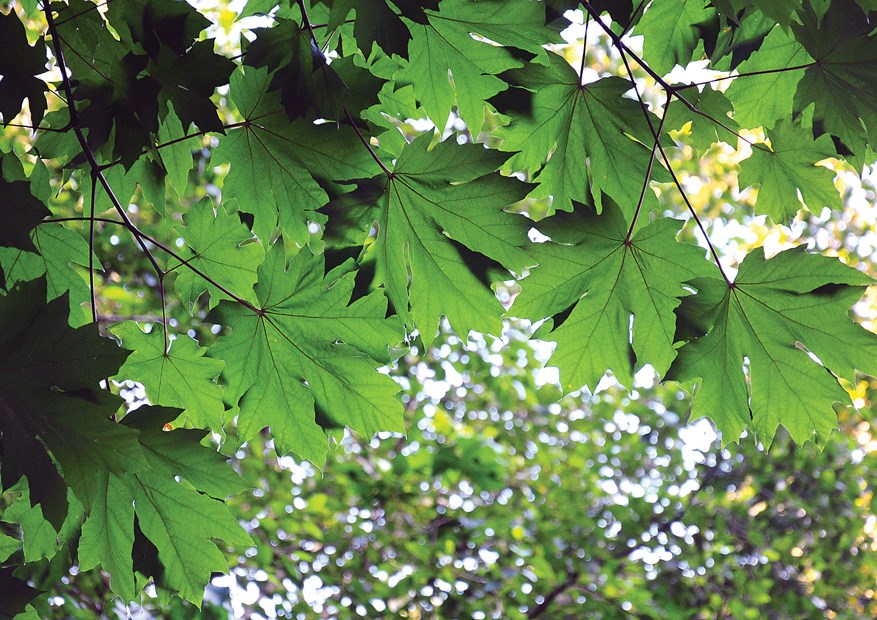Summer is the season of the tree or in some cases half a tree.
If you live in a home with a view of the mountains or the ocean, trees that obstruct the view are problems to be dealt with promptly. A friend of mine who is an arborist tells me that much of his work at this time of year focuses on altering trees to open up the homeowner's view of the ocean or mountains. I have no problem with pruning for views when the work is done in a manner that retains the structural integrity and long-term health of the tree. However, I part ways with people who want to cut down or brutally top trees just so they can occasionally look out the window at the ocean.
Trees of all types, shapes and sizes are crucially important to the health of people, wildlife and global ecology. As I have mentioned previously in this column, trees regulate and control rainfall runoff, prevent erosion and provide a home for wildlife. Trees also store carbon, add beauty to the community and increase property value. But most importantly, trees provide oxygen for everyone to breathe. I could go on but I think you get the point.
There are people who love their trees and will not prune them for any reason, except safety. There are also people who will carelessly cut, top and remove any tree that does not conform to their specific perspective. And there are other people who believe there should be laws governing which trees can and cannot be planted on private land. The issue is somewhat complex because it deals with overlapping issues of personal property rights and how individuals should co-operate and respect each other in a civil society.
Based on my previous experience working for the municipal government, personal property rights are sacrosanct in Canada. Governments are very hesitant to enact bylaws that infringe too much on personal property rights for fear of a public backlash and because the Supreme Court would likely overrule any law that infringes on personal rights. However, there are times when the so called greater good of society is used as a reason to enact laws that limit personal property rights. For example, cosmetic pesticide bans or laws preventing the storing of hazardous waste on residential lands - such laws protect the health of all people regardless of property rights.
Beyond public health concerns or noise bylaws, I would not want any government to start dictating what I can do on my own property, especially by telling me what type of tree I can plant. The question then becomes should I, as a member of a civil society, consider my neighbour's view when choosing plants for my garden. Perhaps, but such considerations would severely limit what I can plant, so now my rights are being infringed upon. It is important to remember that the loss of a nice view of the ocean may be inconvenient but it does not affect human health or other human rights. Having a pretty view is not a fundamental human right when compared to freedom of religion, freedom of opinion or freedom of peaceful assembly.
The North Shore is widely known as a mountainous and heavily forested community, which is part of its charm. So don't move here and expect to cut down all the trees on your property to create some kind of desert just so you can look at the ocean. This is Canada, we are known for the abundance of our trees, which may be part of the reason we have a maple leaf on our country's flag. All the North Shore municipalities have tree cutting bylaws that prevent people from cutting down trees that contribute to the health and beauty of communities.
When it comes to plants hanging over the property line or trees that affect views there are two generally accepted unofficial rules. Firstly, any plant that hangs over the property line onto an adjoining property may be cut without permission from the original owner because the plant is infringing on or negatively affecting the adjoining property owner's land. However it is always polite to ask permission first. Secondly, an owner whose view is being obstructed by another owner's tree will pay for the pruning. The tree owner consents to the work, the owner whose view is obstructed pays for the work and everyone is happy, except for the tree.
Undoubtedly, buying a home with a view and then losing the view years later to tree growth can be upsetting. However, each citizen should consider the larger and wider environmental consequences of vanity-based tree cutting. And having an unobstructed view of the ocean or mountains is really only a First World problem.
Todd Major is a journeyman horticulturist, garden designer and builder, teacher and organic advocate. [email protected]



